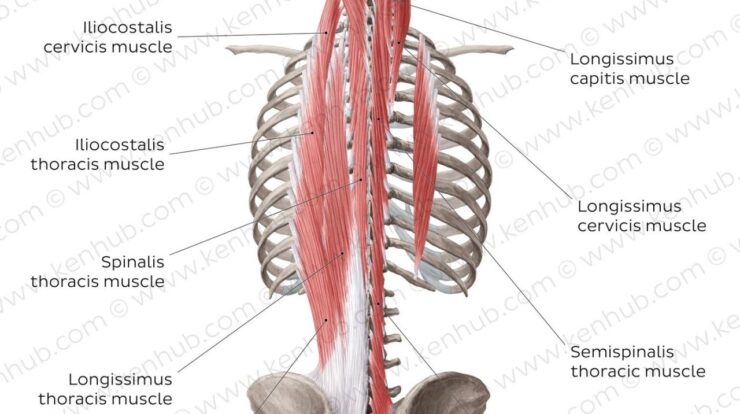
How to cure gum disease without a dentist – Cure gum disease without a dentist? It’s possible! Discover natural remedies, lifestyle tweaks, and over-the-counter solutions to banish gum woes. Dive in and learn how to keep your gums healthy and strong.
Gum disease affects millions, but with the right knowledge, you can take charge of your oral health. This guide will empower you with simple yet effective strategies to heal your gums and prevent future flare-ups.
Home Remedies and Natural Approaches
Gum disease is a common problem that can lead to serious health issues if left untreated. While it’s important to see a dentist for regular checkups and treatment, there are some home remedies and natural approaches that can help to improve gum health and prevent gum disease.
Herbal remedies have been used for centuries to treat a variety of health conditions, including gum disease. Tea tree oil and clove oil are two essential oils that have antibacterial and anti-inflammatory properties that can help to reduce inflammation and kill bacteria in the mouth.
Salt water rinses are another effective home remedy for gum disease. Salt water helps to reduce swelling and pain and can help to remove bacteria from the mouth.
Probiotics are live bacteria that are beneficial to health. They can help to improve digestion, boost the immune system, and reduce inflammation. Eating probiotic-rich foods, such as yogurt, kefir, and sauerkraut, can help to improve gum health and prevent gum disease.
Herbal Remedies
- Tea tree oil has antibacterial and anti-inflammatory properties that can help to reduce inflammation and kill bacteria in the mouth.
- Clove oil is another essential oil with antibacterial and anti-inflammatory properties that can help to improve gum health.
Salt Water Rinses
Salt water rinses are an effective home remedy for gum disease. Salt water helps to reduce swelling and pain and can help to remove bacteria from the mouth.
Probiotics
Probiotics are live bacteria that are beneficial to health. Eating probiotic-rich foods, such as yogurt, kefir, and sauerkraut, can help to improve gum health and prevent gum disease.
Lifestyle Modifications

In addition to home remedies and natural approaches, incorporating certain lifestyle modifications can significantly contribute to preventing and managing gum disease. These changes primarily involve adopting healthy oral hygiene practices, quitting smoking, and maintaining a balanced diet.
Importance of Good Oral Hygiene Practices
Regular brushing and flossing are essential for maintaining good oral hygiene and preventing gum disease. Brushing twice a day with a soft-bristled toothbrush and fluoride toothpaste helps remove plaque and bacteria from the teeth and gums. Flossing daily removes plaque and food particles from between the teeth, where brushing alone cannot reach.
Proper oral hygiene practices help keep the gums healthy and free from inflammation.
Quitting Smoking, How to cure gum disease without a dentist
Smoking is a major risk factor for gum disease. The chemicals in cigarettes damage the gums and weaken the immune system, making the body less able to fight off infection. Quitting smoking significantly improves gum health and reduces the risk of developing gum disease.
Dietary Considerations
Maintaining a healthy diet plays a role in preventing gum disease. Limiting sugary foods and drinks can help reduce the amount of plaque that forms on the teeth. Plaque is a sticky film that contains bacteria, which can cause gum inflammation and disease.
Consuming fruits, vegetables, and whole grains provides essential vitamins and minerals that support overall oral health.
Over-the-Counter Treatments

If you’re looking for a way to treat gum disease without going to the dentist, there are a few over-the-counter treatments that can help. These treatments can help to reduce inflammation, kill bacteria, and prevent further damage to your gums.
Antimicrobial Mouthwashes
Antimicrobial mouthwashes are designed to kill bacteria that cause gum disease. They typically contain ingredients such as chlorhexidine or cetylpyridinium chloride, which are effective at reducing plaque and gingivitis.
Antiseptic Gels and Pastes
Antiseptic gels and pastes can also be used to treat gum disease. These products contain ingredients such as hydrogen peroxide or triclosan, which can help to kill bacteria and reduce inflammation.
Dental Sealants
Dental sealants are thin coatings that are applied to the chewing surfaces of your teeth. They help to prevent cavities by sealing out bacteria and plaque. Dental sealants can also help to prevent gum disease by keeping bacteria from getting under the gums.
Advanced Treatments
For severe cases of gum disease, more advanced treatments may be necessary to restore gum health and prevent further damage.
These treatments include the use of antibiotics, laser therapy, and surgical procedures.
Antibiotics
Antibiotics are prescribed to treat gum disease caused by bacterial infections. They are typically taken orally or applied directly to the affected area.
Commonly used antibiotics for gum disease include amoxicillin, metronidazole, and tetracycline.
Laser Therapy
Laser therapy uses a concentrated beam of light to remove diseased gum tissue and bacteria. It is a minimally invasive procedure that can be used to treat early to moderate stages of gum disease.
Laser therapy is often used in combination with other treatments, such as scaling and root planing.
Surgical Procedures
Surgical procedures may be necessary for advanced cases of gum disease that have not responded to other treatments.
These procedures aim to remove diseased tissue, reduce periodontal pockets, and restore the health of the gums and supporting bone.
- Flap surgery: Involves lifting the gum tissue to remove bacteria and tartar from the tooth roots.
- Bone grafting: Used to repair damaged bone tissue that supports the teeth.
- Guided tissue regeneration: Promotes the growth of new bone and tissue to support the teeth.
Prevention and Maintenance

Maintaining healthy gums after treatment is crucial for preventing gum disease recurrence. Regular dental checkups, fluoride treatments, and proper oral hygiene practices are essential for long-term gum health.
Regular Dental Checkups
Visiting the dentist regularly allows for early detection and treatment of gum disease, preventing it from progressing to more severe stages. Professional cleanings remove plaque and tartar buildup, reducing inflammation and promoting gum health.
Fluoride Treatments
Fluoride strengthens tooth enamel, making it more resistant to decay. Fluoride treatments can also help prevent gum disease by reducing the growth of bacteria that cause inflammation.
Maintaining Healthy Gums after Treatment
After gum disease treatment, maintaining good oral hygiene is vital. Brushing twice a day with a soft-bristled toothbrush and fluoride toothpaste removes plaque and bacteria. Flossing daily helps remove plaque and food particles from between teeth, where a toothbrush can’t reach.
Using an antiseptic mouthwash can further reduce bacteria levels in the mouth.
Closure

Remember, gum health is essential for overall well-being. By embracing the tips and tricks Artikeld here, you can restore and maintain healthy gums. So, bid farewell to gum disease and embrace a radiant smile!
Commonly Asked Questions: How To Cure Gum Disease Without A Dentist
Can I cure gum disease with just home remedies?
While home remedies can alleviate symptoms, they may not cure advanced gum disease. Consulting a dentist is crucial for proper diagnosis and treatment.
How long does it take to cure gum disease?
Gum disease treatment duration varies depending on severity. Mild cases may resolve within a few weeks, while advanced cases may require ongoing care.
Is gum disease reversible?
Early-stage gum disease is reversible with proper treatment. However, advanced stages may cause irreversible damage to the gums and supporting structures.





